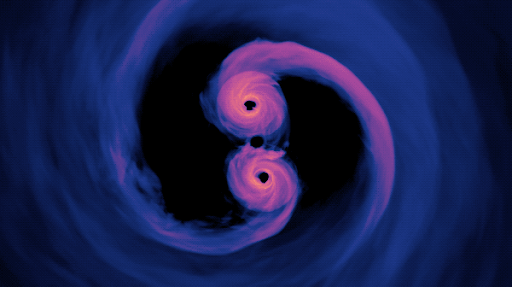Radiation from black holes was the first example of a prediction that depended on both of the great theories of this century, general relativity and quantum mechanics. It aroused a lot of opposition initially because it upset the existing viewpoint: “ How can a black hole emit anything? ” When Stephen Hawking first announced the results of him calculations at a conference at the Rutherford Laboratory near Oxford, Hawking was greeted with general incredulity. At the end of Hawking talk the chairman of the session, John G. Taylor from Kings College, London, claimed it was all nonsense. He even wrote a paper to the effect.
However, in the end most people, including John Taylor, have come to the conclusion that black holes must radiate like hot bodies if our other idea about general relativity and quantum mechanics are correct. Thus even though Hawking have not yet managed to find a primordial black hole, there is fairly general agreement that if Hawking did, it would have to be emitting a lot of gamma and X rays. If Hawking do find one, He will get the Noble Prize.
The existence of radiation from black holes seems to imply that gravitational collapse is not as final and irreversible as we once thought. If an astronaut falls into a black hole, its mass will increase. Eventually, the energy equivalent of that extra mass will be returned to the universe in the form of radiation.
Thus, in a sense, the astronaut will be recycled. It would be a poor sort of immortality, however, because any personal concept of time for the astronaut would almost certainly come to an end as he was crushed out of existence inside the black hole. Even the types of particle that were eventually emitted by the black hole would in general be different from those that made up the astronaut. The only feature of the astronaut that would survive would be his mass or energy.
The approximations, Hawking used to derive the emission from black holes should work well when the black hole has a mass greater than a fraction of a gram. However, they will break down at the end of the black hole’s life, when its mass gets very small. The most likely outcome seems to be that the black hole would just disappear, at least from our region of the universe. It would take with it the astronaut and any singularity there might be inside the black hole. This was the first indication that quantum mechanics might remove the singularities that were predicted by classical general relativity. However, the methods that Hawking and other people were using in 1974 to study the quantum effects of gravity were not able to answer questions such as whether singularities would occur in quantum gravity. And Hawking radiation equation has a blackbody spectrum:
From 1975 onward, Hawking therefore started to develop a more powerful approach to quantum gravity based on Feynman’s idea of a sum over histories. We shall see that quantum mechanics allows the universe to have a beginning that is not break down at the origin of the universe. The state of the universe and its contents, like ourselves, are completely determined by the laws of physics, up to the limit set by the uncertainty principle. So much for free will.







Hello My Dear Friends
ReplyDeleteThis Blog Says you a black body Radiation by Hawking equation
Read more And Enjoy 😊...